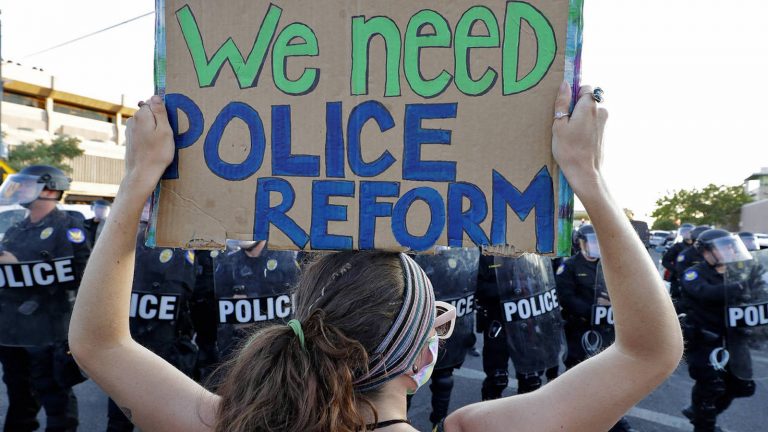It is hard to recall a more contentious and strained time in America. The growing divide between Americans has been gradually increasing over the past decade and the murder of George Floyd at the hands of Minneapolis police seems to have rapidly accelerated this. Initially, the response was unified. Most Americans saw the death of George Floyd as pure murder and police brutality, and there was a consensus that reform was needed. Since then, the goal of reform has been subverted and hijacked by groups who have only further fueled the division, and America has lost sight of the goal.
Is it reasonable to expect that America, a vast multicultural society that spans over 3,000 miles and consists of over 330 million people, with diverse social and economic interests, be commanded from Washington D.C. without severe conflict and division? There needs to be a shift from the century-long trend of centralization and one-size-fits-all governance.
To have a chance at healing this growing divide America needs to rediscover its forgotten spirit of localism and subsidiarity. There is no better place to start than police reform.
Subsidiarity is the idea that decisions and control should be left to the lowest possible order of society. This begins with the individual and family, then community organizations, local government, state government, and lastly the federal government. A higher order should only interfere when an emergency makes it necessary. When the emergency ends, the intervention by the higher order should subside. The idea of subsidiarity is that people closest to the problem and issues are best equipped to deal with them. There is nowhere this is truer than policing within communities.
The classic television show, The Andy Griffith Show, commonly portrays this idea of subsidiarity within law enforcement through Sherriff Andy Taylor and Deputy Barney Fife. They knew everyone in the community, chewed the fat down at the local barbershop, and had an intimate understanding of Mayberry’s culture, issues, and people. The community trusted and respected Andy and even coordinated with him to help keep Mayberry safe. This classic Hollywood depiction is far from the reality in America today. What happened to the friendly neighborhood cop?
Police centralization.
The idea that policing could be made more efficient if centralized gained traction during the prohibition era. Law enforcement was struggling to chase citizens-made-criminals overnight by the banning of production and distribution of alcohol. The idea was to consolidate local community police departments to be more effective. The consequences took years to become rooted, but by the mid-20th century community police departments were rare. Officers were stretched thin and placed into communities in which they did not live or understand. The consolidation method sacrificed community relations in exchange for the belief that there was one best way to police diverse communities.
Economist Elinor Ostrom, the only woman to ever win the Nobel Prize in Economics, pushed back on the idea that there was one best way to police. She introduced her theory of co-production. The idea that communities and police officers should work together to define what public safety is for their individual communities. Her research caught on even with Washington D.C., but instead of giving communities the freedom to pursue this plan of co-production, the federal government created a single standard of community policing and tied grant money to communities that implemented it. The incentive of federal grant money made police prioritize federal initiatives to keep the money flowing in over the unique needs of their community. Grants like these are the ways that police departments are supplied military-type equipment. It is challenging to build trust with the community when police look like they are preparing to go to war with you.
Despite the setback at the hands of federal control, Elinor Ostrom’s research showed that smaller police jurisdictions allow for an increase in citizen participation and satisfaction with their community policing. Higher community control of policing standards allows for individual preferences of diverse communities to be implemented and maintained. When smaller communities have control, the likelihood of officers also living within the community and understanding the community increases. Imagine the difference in a young person’s life if the officer picking them up understands them on a personal level and instead of hauling them off to jail, the criminal justice system is able to bring them home to mom and dad. When the community and the police collaborate, they can deliver personal criminal justice that fits the unique needs of the community.
Starting with police reform, America can begin implementing real changes that respect the dignity of individuals and their communities by removing the obstacles preventing local solutions. Restoring community and individual sovereignty will foster a culture of peace and cooperation that is inherently American. America is the idea of people cooperating and figuring out the good stuff together. Rediscovering the idea of localism and subsidiarity will help protect the idea of America and show that her diversity is her strength.














[…] the expanding use of tech with reform efforts? We say, absolutely. As discussed in Mike Feuz’s article on the subversion of police reform, part of what America needs is to rediscover the ideas of […]